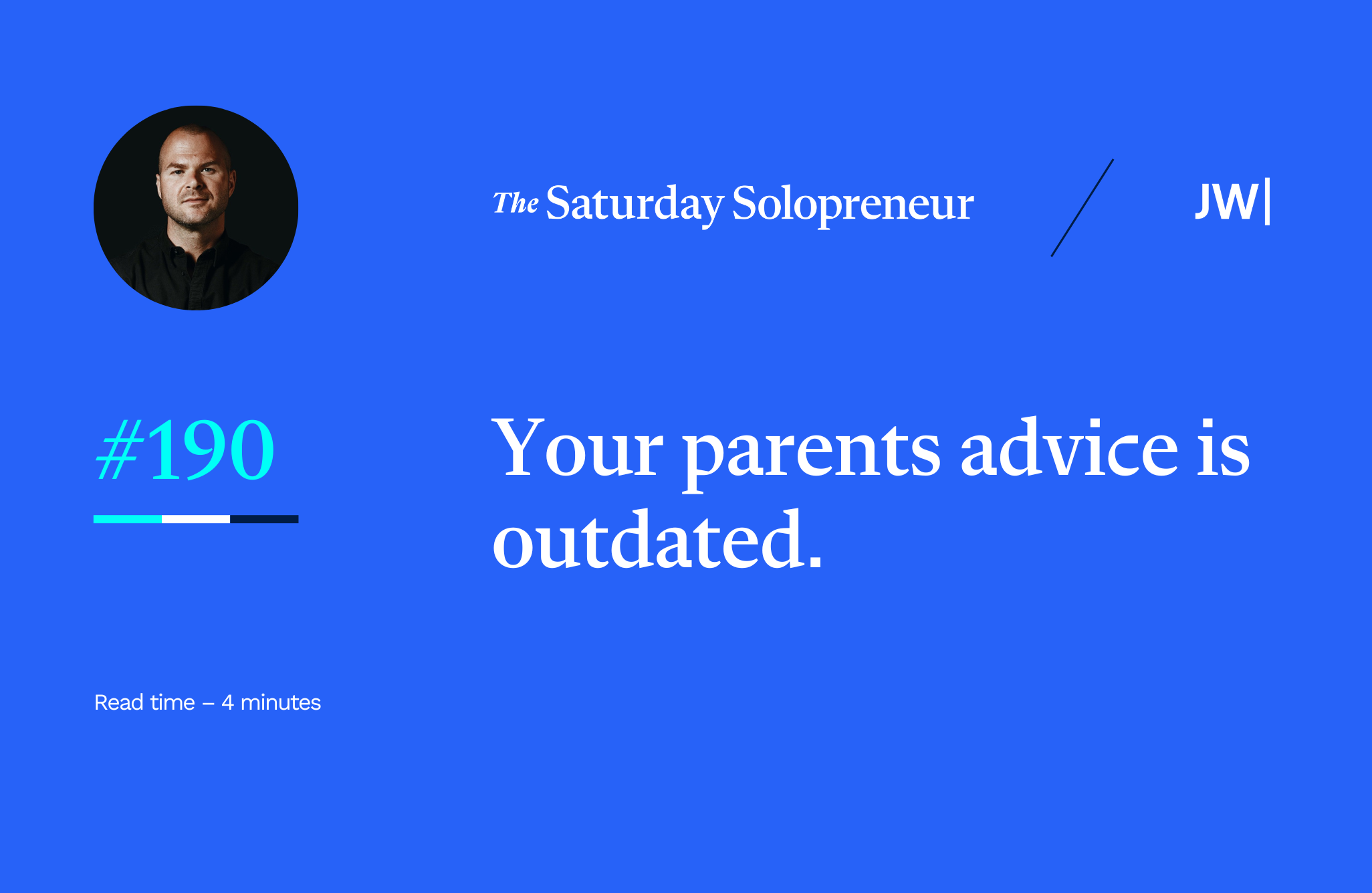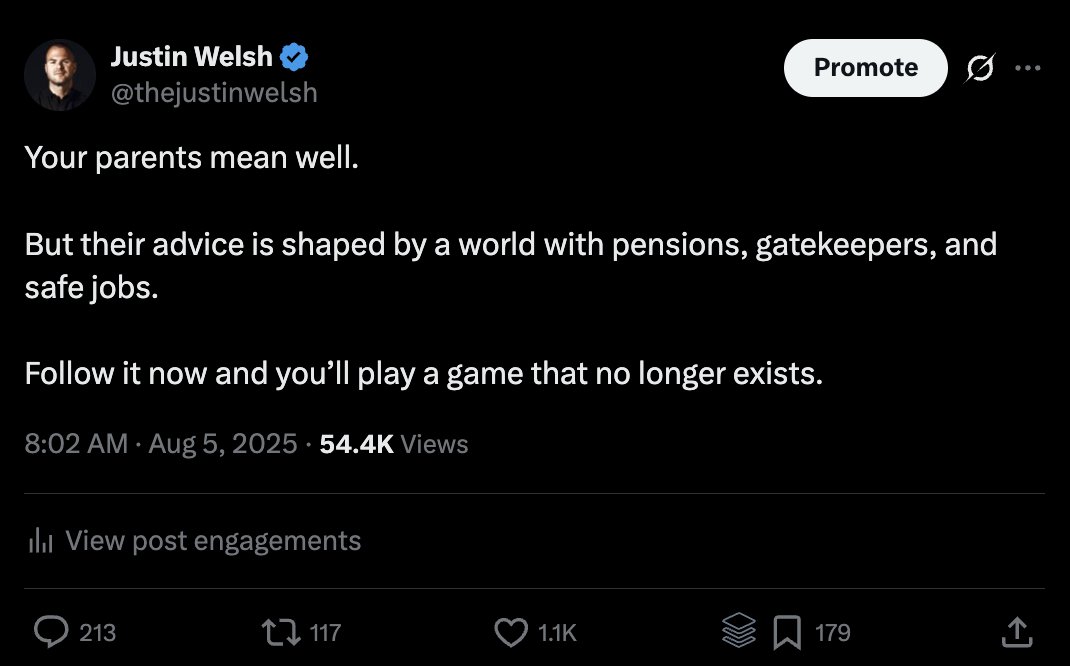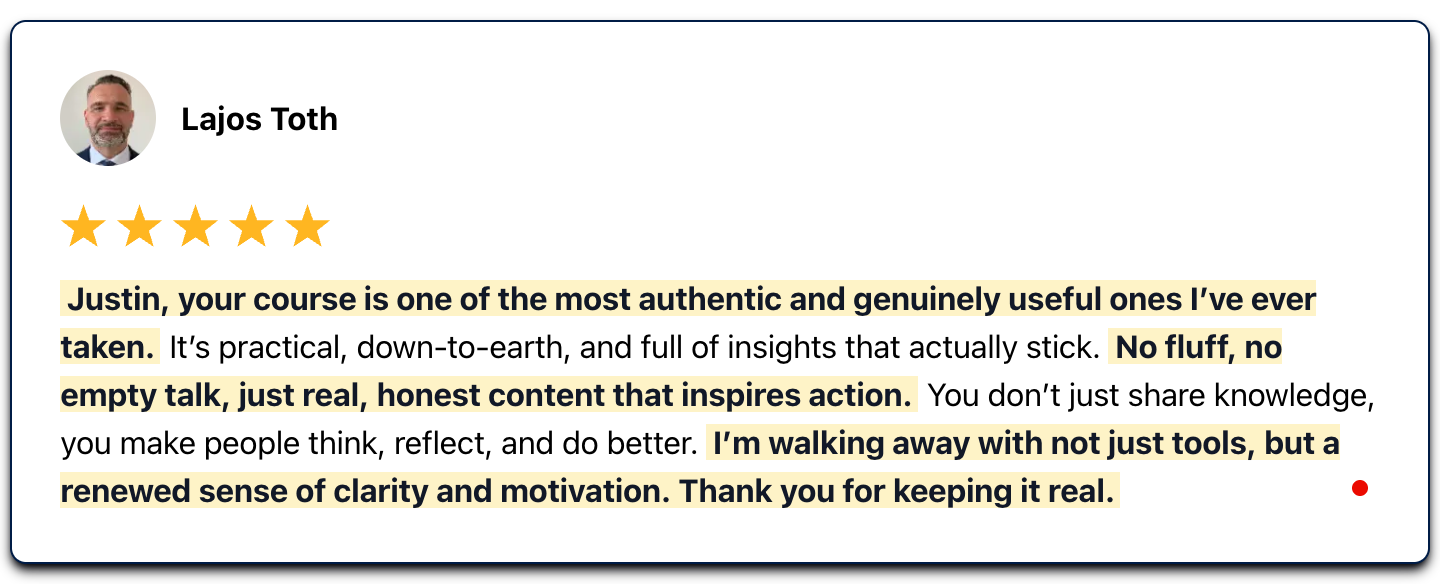
Your parents advice is outdated.
Make Your Content More Persuasive
This simple copywriting framework helped Kieran Drew scale to 265k followers and $1,350,000 in revenue. Upgrade your writing fast.
Attio is the AI CRM for the next generation of teams.
Sync your email and calendar and Attio builds your perfect CRM in seconds. Trusted by fast-growing teams like Granola, Flatfile, and Modal.
I caught up with an old college friend last month. And as we got into the typical "how's business?" conversation, he told me about an exhausting family dinner he endured. The visit started off well, but by the end of dinner, his parents were explaining why he should go back to a "safe" job with a steady paycheck.
His one-man SEO agency did $250K in revenue in 2023, but dipped to $150K in 2024. So his parents started worrying, and out came the unsolicited advice, the nitpicking, and the little jabs.
When I asked him how he felt about it, he said this:
"They mean well, but I feel like they're giving me advice for a world that doesn't exist anymore."
I've heard this exact sentence from dozens of entrepreneurs. That conversation stuck with me for days (and ended up eventually becoming a Tweet) because I finally understood why this disconnect exists.

The world that created their advice
His parents' advice isn't wrong. It's just outdated.
My dad worked at the same company for 42 years. He stayed in the same territory the whole time, survived three mergers, and retired with everything he was promised.
His path made perfect sense. Companies invested in employees for decades. Switching jobs was suspicious. Handshake deals meant something. My folks watched their friends retire with pensions, and saw decades of loyalty rewarded with gold watches and retirement parties where people cried because they were actually going to miss you.
This was the world that created my parents' mental model about how careers should go. A world where "safe" actually meant safe. But that world started dying long before we noticed.
The day the old rules died
I tried to follow my dad's playbook for the first six years of my career. But I was young, inexperienced, and completely uninspired. I couldn't fake enthusiasm for products I didn't believe in, just to make someone else rich. So I was fired three times and never received more than a 3% raise.
2009 was the third and final time I was fired. My boss and the HR fella surprise-fired me at a Panera in a strip mall and tried to take back my company car right then. Problem was I didn't have another car.
So I told them I needed to collect my personal items from the car, walked out to the parking lot, and drove that company car straight to my parents' house 207 miles away. My boss called pretty soon, demanding I bring the car back. I said "Not a chance," and kept going. (They eventually retrieved the car from my parents' driveway.) Not my proudest moment, but definitely my most honest one.
So there I was. Twenty-eight years old, sitting in my childhood bedroom in Novelty, Ohio. No job, no car, and three terminations on my resume. Where the hell does someone go from there?
My parents told me to try harder, to get more serious, and not to steal any more cars. But they didn't say what I was starting to understand: The game itself was broken, not just my ability to play it.
Learning the new rules
I needed to take some drastic measures, so I got creative. I rejiggered my resume to make my previous roles look a little better. I put my upgraded resume on a job search website, and got a call from a tiny startup in NYC pretty quickly.
Coming from the boring corporate world, nothing had prepared me for what happened next.
I showed up day one, agreed to a crash course training, and was told to hit the streets of Manhattan and "sell something." And on that first day, I closed a deal.
When I walked back into the office, my co-workers celebrated my sale. We poured beers and kept working late into the evening, and I loved every minute of it.
At my corporate jobs, I was employee #4,847. But at this scrappy startup, I was Justin, the new sales guy who closed deals. For the first time, my work seemed to actually matter.
One day, the CEO saw that I looked exhausted (my living situation was a friend's couch), so he gave me a blank check and told me to buy a good bed. My loyalty and excitement were sealed, and by my third quarter, I was the new salesperson of the quarter. They promoted me to an area manager position and moved me to San Francisco to build the west coast team and my career never looked back.
This company taught me the new rules:
- Individual contribution matters
- Speed and results beat tenure every time
- Direct value creation gets rewarded fast
I didn't need to wait ten years. I was now managing teams just seven months into my tenure. And over the next four years, I built an “internal brand” as the guy who fixed difficult problems. So I was moved around the country five times, paid handsomely, and treated with respect. It was here that I’d learn that in the new economy you could build equity in yourself, not just in someone else's company.
Mastering the new game
I spent the next decade climbing ladders in two startups and helped them both achieve billion-dollar-plus valuations. I learned how value actually gets created, what gets rewarded, and how decisions really get made.
But I was still renting my success from someone else.
Then, in 2015, I finally got high enough to see behind the curtain. I was sitting in my first downsizing meeting as an executive, looking at a spreadsheet of names about to lose their jobs. Good, loyal people. People who'd skipped vacations and missed kids' games for the company.
Want to know what we discussed? Numbers and line items. Want to know what we never discussed? Their loyalty, their kids' names, the weekends they worked. When pressure from the board is on, executives look at spreadsheets, not people.
And I realized I was probably one budget cut away from being a line item too someday.
So in 2019, I did something my parents couldn't comprehend. I left my executive role and started building my own thing. No boss, no office, and no commute. Just me, my knowledge from 15 years in the game, and a laptop.
But I didn't jump blind. I started by creating some pipeline via LinkedIn about six months before I left my role. I just posted about everything I had seen, done, and learned in my startup life. I'd watched a few people build consulting practices this way, and figured I could too. By the time I left my "real job," I had five companies ready to pay me as a consultant.
Within 12 months, I'd built a business that produced more revenue than my previous jobs ever paid me. And I was doing it with nothing but a laptop, a LinkedIn account, and my expertise. Best of all? Everything I built belonged to me. Every subscriber, every piece of content, and every dollar was mine.
My dad felt satisfied after 42 years because he was a respected expert in his field, and he truly enjoyed his work. But when he retired, all that expertise walked out the door with him. There were no assets to take along, no ongoing revenue, and no compounding returns on four decades of work.
When I explain what I do now to my parents, they still tell me, “I don’t even know how to explain what you do to people.” Even after six years, the idea of making money without a boss feels like wizardry to them. And that's how my college buddy's parents feel too. They focus on the risk, and they don't see that he's making more than most corporate jobs while owning his time.
The choice you're actually making
A couple of weeks after catching up with my college buddy, he texted me an update. He thanked his parents for their concern, and doubled down on his SEO agency. Last week, he signed his biggest client ever to a $75K project that'll take his 2025 revenue past 2023's peak.
His parents still worry. They ask about health insurance and retirement savings. And you know what? Those are absolutely real concerns. But he's solving them by buying his own health plan, maxing out a SEP-IRA, and building assets that compound.
His parents aren't wrong about wanting security for their son. They're just wrong about where that security comes from today.
Every day you stay in false safety, you're betting your future on someone else's spreadsheet. The question isn't whether to build something of your own. It's whether you'll start before or after your company makes that decision for you.
My friend learned what took me three firings and a stolen company car to understand. That the old map doesn’t always lead somewhere good anymore.
Maybe it’s time to draw your own?
That’s all for this week.
See you next Saturday.
P.S. If you're interested in learning how to finally start building a personal brand for yourself, I put together the most comprehensive research in the market and packaged it in 90 min. of video.

The Creator MBA Masterclass is my complete business playbook. Every framework and system I used to grow my following to 1.5M and my business to $12M in revenue at 90% margins. Learn how to finally monetize your expertise!
Sponsor The Saturday Solopreneur and put your brand or business in front of 175,000+ solopreneurs, entrepreneurs, authors, creators, and makers.
